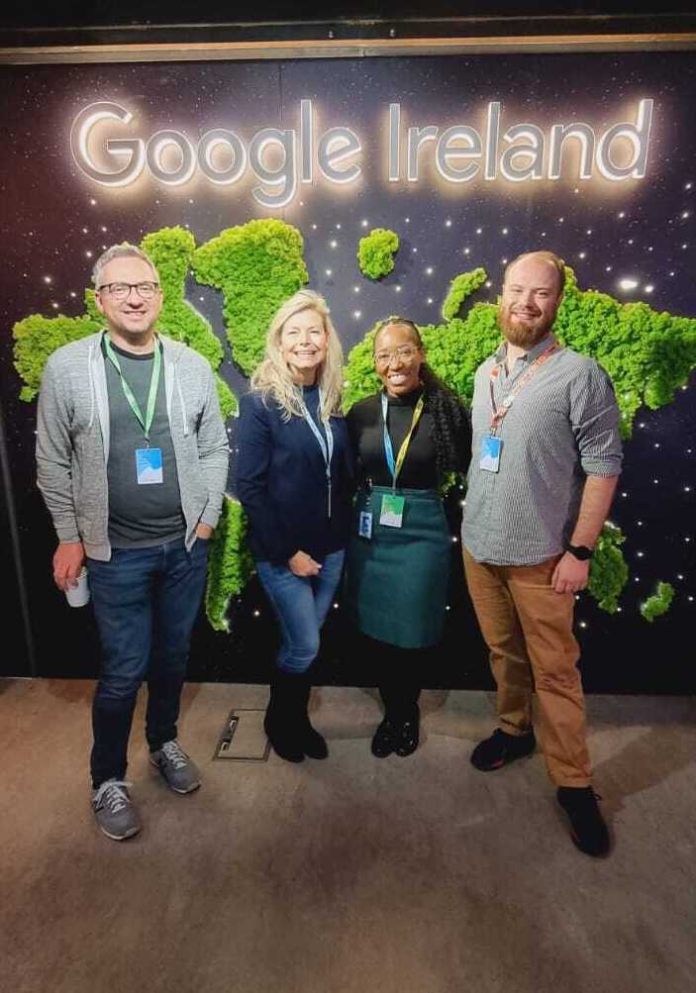
Local marketers must gear up for big privacy and AI changes. Incubeta’s Wendy Case, Johan Walters, and Julien Fiévez attended the exclusive annual EMEA Google Partner Summit in Dublin late last year. They unpack Google’s vision and also share their insight on how local companies should be shifting their operations to compete in a market where, in just six years, more than 80% of marketing will have some kind of AI augmentation.
Consented Data Is AI’s Fuel
Marketers find themselves in an ever evolving ad privacy ecosystem as today’s users demand more control. This has resulted in ongoing regulatory changes and platform updates. This constant flux has made it difficult for advertisers to accurately measure and maximise their digital investments.
To address this, Google has provided marketers with more tools to navigate these changes. These include the introduction of GA4 and Broad Match in 2020, Performance Max and Enhanced Conversations in 2021, and AI-driven creative optimisation, enhanced fraud detection and Ad Targeting in 2022.
The Google Summit team was quick to point out to its global partners that it had been working with AI technologies since 2018 already, and that consistent and incremental improvements were woven into their updates over the five years.The company was emphatic that by 2030, 80% of marketing would be AI augmented, signalling a rapid requirement for businesses to invest in technology which will make the most of the potential this provides in the coming years.
It quickly became clear that the agencies that would gain the competitive advantage for their clients in the future will be those who take bold steps to guide advertisers into an AI-first new world.
Practical Steps That Can’t Be Ignored
Practically, this means powering durable measurement and privacy solutions. Agency partners must help brands move away from Universal Analytics and ensure a complete migration to GA4, along with comprehensive adoption of the platform.
Implementing a consented first party data strategy to better fuel AI is the next step. This requires a robust test-and-learn approach with appropriate budgets and resources. More particularly, brands must get to grips with Privacy First capabilities, ensuring they are collecting consented data, using Consent Mode in conjunction with GA4 and Enhanced Conversions.
Incubeta has always promoted a test-and-learn methodology and this is the perfect approach for the work that lies ahead. Google shared that companies which had run 15 or more experiments (rather than those who had run none), experienced a 30% higher ad performance.
It’s Not Just About The Machine
While the prospect of an AI-powered marketing world may seem daunting, it was abundantly clear that the role that humans play will become even more important in the future of digital marketing.
Google says it still believes that AI, in addition to human intervention, is the key to efficiency gains and that the two should not work in isolation. In fact, one of its own tests revealed that when applying AI and consented first party data to a campaign, there was a 20% improvement. But when human intervention was added to the mix, there was a substantially greater 35% boost in performance. Tech, whether AI or any other, should not be a black box or impenetrable system, but requires the insights and guidance of experienced humans to ensure optimised results.
This New Approach Will Require A New Industry Mindset
Incubeta is also firmly of the opinion that a key part of the way forward is for better collaboration within the industry. Almost all brands are working with more than one and sometimes multiple agencies. Establishing the appropriate new skills and capabilities within the industry and then sharing these amongst partners is key to ensuring clients see real results. Collaboration is also the best way to build resilience into the marketing industry as a whole.
Partners Play A Key Role In Google’s Future
A key takeout of the Summit was that if brands wanted to take that next, bold step into an AI-driven future, they would require Google partners to guide them. Turning privacy-first strategies into actionable, realistic plans will need an experienced agency partner who not only understands the vision of Google, but also the unique needs of the client.
Google was emphatic that it sees its partners as key innovators and collaborators, especially when it comes to new product development. With this in mind, it becomes abundantly clear the brands that choose to work with Google partners stand to gain valuable insight, a pragmatic approach, and the industry edge when it comes to leveraging the very best technology while still realising meaningful returns.
INCUBETA
https://www.incubeta.com









